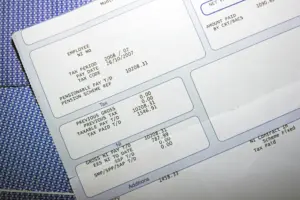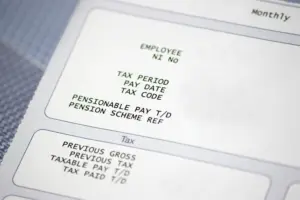California is home to some of the strongest wage and hour laws in the country, but violations happen every day in Los Angeles County. Workers across all industries lose thousands in unpaid wages, missed rest breaks, and overtime pay when employers cut corners or misclassify employees.
At West Coast Employment Lawyers, our experienced wage and hour lawyers help California employees hold employers accountable for violating the law. We combine extensive experience in employment law with a deep understanding of the California Labor Code, federal laws like the Fair Labor Standards Act, and the specific regulations that govern non-exempt employees.
To schedule a free case evaluation with one of our top-rated wage and hour lawyers, we welcome you to contact us by calling (213) 927-3700 or by filling out our online contact form.
Why Choose West Coast Employment Lawyers

At West Coast Employment Lawyers, we handle all types of employment law cases, from wage and hour disputes to workplace discrimination and wrongful termination.
Trusted Results, Time After Time
Our track record shows what we’re capable of. That’s winning cases and securing justice for clients just like you.
Your Priorities Are Our Priorities
We listen, we understand, and we tailor every step, so you always feel supported and informed.
Communication You Can Count On
When you have questions, you’ll get answers, quickly, honestly, and from someone who knows your case inside out.
Dedicated Team of Attorneys
Our legal team fights aggressively to recover back pay, penalties, and interest for workers who have been shortchanged.
Available Day or Night
A real person from our team is standing by to take your call and get you answers whenever you need legal assistance.
What Is Wage Theft?
Wage theft is when an employer does not properly compensate an employee in accordance with California’s wage and hour laws. Common examples of wage theft include the following:
- An employee is being paid less than California’s minimum wage.
- An employer refuses to offer overtime pay to an employee who has worked more than 40 hours in a week.
- An employer fails to reimburse an employee for business expenses.
- An employer steals an employee’s tips.
- An employer refuses to provide meals and/or rest breaks.
- An employer has a habit of not paying their employees on time.
- An employer reduces an employee’s salary, but it does not comply with California’s wage and hour laws.
- An employer does not compensate the employee for taking a paid leave.
Wage theft is generally reported by employees who have a low salary, such as those working in janitorial services, agriculture, restaurants, poultry processing, garment manufacturing, and retail.
What Are Wage and Hour Laws?
Wage and hour laws are state and federal regulations designed to ensure fair pay and humane working conditions. In California, these protections are enforced through:
- The California Labor Code
- The Industrial Welfare Commission (IWC) Wage Orders
- The Fair Labor Standards Act (FLSA)
- Oversight from the California Department of Industrial Relations and Labor Standards Enforcement (DLSE)
Together, these laws protect workers from wage theft, hour violations, and unlawful deductions by employers.
Common Wage and Hour Violations in California
The California Labor Code governs wage payments, overtime, and rest periods. It also authorizes the Labor Standards Enforcement division to investigate claims and issue penalties. California employees can pursue justice through administrative claims or direct lawsuits against employers who violate these laws.
1. Unpaid Overtime and Off-the-Clock Work
California requires overtime pay for any work exceeding eight hours per day or 40 hours per week. Under Labor Code §510, overtime must be paid at 1.5 times your regular rate and double time for hours beyond 12 in a single day.
Some employers avoid paying by asking employees to work “off the clock” or altering time records. These hour violations are illegal under both California and federal laws.
2. Missed Meal and Rest Breaks
Meal breaks and rest breaks are fundamental employee rights under Labor Code §512 and Wage Order §11–12. You’re entitled to:
- A 30-minute meal break after 5 hours of work
- A second 30-minute meal break after 10 hours
- A 10-minute rest break for every 4 hours worked
If your employer denied or interrupted your breaks, you are owed one additional hour of pay per violation.
3. Minimum Wage Violations
Los Angeles has a higher minimum wage than most of California. As of 2025, workers employed by businesses with 26 or more employees must earn at least $17.28 per hour. Paying less than this violates both city and state employment law.
Employers who violate minimum wage rules face penalties under the California Labor Code and can be sued for back pay and lost wages.
4. Misclassification of Employees
One of the most unexpected forms of wage and hour theft, employers sometimes misclassify workers as independent contractors to avoid paying benefits or overtime. By doing so, they may have the independent contractor perform extra or more hazardous tasks without appropriately paying them.
California’s ABC Test (Labor Code §2775) determines whether a worker is truly independent. If your duties are part of the company’s regular business, you’re likely a non-exempt employee entitled to full wage protections.
5. Failure to Reimburse Business Expenses
Under Labor Code §2802, employers must reimburse employees for necessary business expenses, including:
- Cell phone or internet use
- Vehicle mileage and parking
- Work-from-home equipment
When an employer fails to reimburse, they violate employment law and may owe compensation plus interest.
6. Unlawful Deductions and Withheld Wages
A very common occurrence in wage and hour theft cases, employers may unlawfully deduct or withheld wages from their employees for business-related expenses such as uniforms, supplies, and other business needs. Under federal and state law, employers cannot deduct pay for mistakes, broken equipment, or cash shortages unless it was caused by intentional misconduct by their employees. However, this may lead to unlawful deductions and delayed paychecks and affected employees are urged to seek legal representation to ensure their rights are protected.
Federal and State Protections for California Employees
The Fair Labor Standards Act
The Fair Labor Standards Act (FLSA) sets national standards for minimum wage, overtime, and recordkeeping. However, California employment law provides broader protections, meaning workers in Los Angeles often have stronger rights than federal law requires.
California Family Rights Act
The California Family Rights Act (CFRA) and Medical Leave Act grant job-protected leave to eligible employees working for companies with five or more employees. Violations of these laws can coincide with wage disputes when employers terminate or dock pay during protected leave.
Our employment lawyers help clients recover lost wages and reinstatement under these statutes.
How Do I Report a Wage and Hour Violation?
Before you make the decision of reporting your employer for violating California’s wage and hour laws, you should speak to them privately about the matter. Ask your employer for an explanation. This will help determine whether a processing error or even a bank mistake was responsible for your reduced or missing wages, and not because your employer just did not want to pay you.
However, if you have noticed a pattern of not being paid on time or in full, or if it is apparent that you are not getting paid on purpose, you should report it to the U.S. Department of Labor’s Wage and Hour Division (WHD). Prior to filing your wage and hour violation report, you must gather any specific details the WHD will need to know.
This includes information about your employer, the number of hours you have worked for the company, and your paystubs. Once all of these documents have been collected, you may proceed to the next step, which is submitting your report to the Labor Commissioner’s Office. In addition, hiring an experienced employment attorney can make the process faster and more seamless, as they will represent you during this process and strengthen your case with evidence.
Why You Need a Los Angeles Wage and Hour Lawyer
When an employer fails to follow employment law, they may owe you for every lost dollar plus penalties. A skilled employment attorney can review pay stubs, time records, and company policies to uncover systemic violations.
Our employment law attorneys at WCEL specialize in wage and hour disputes involving:
- Unpaid overtime
- Meal and rest break violations
- Misclassification of independent contractors
- Failure to reimburse expenses
- Minimum wage underpayments
- Delayed final paychecks
We know the legal process can feel overwhelming, but we’re here to guide you through every step of the way, from filing a wage claim to obtaining a settlement or judgment.
Schedule a Free Consultation With an Wage and Hour Attorney
If your employer owes you unpaid wages, failed to pay overtime, or denied rest breaks, don’t wait. Our Los Angeles wage and hour lawyers are ready to take action. We’ll review your case, explain your legal options, and help you make informed decisions about your next steps.
Contact West Coast Employment Lawyers for a free consultation or free case consultation today. We’ll hold employers accountable, recover what you’re owed, and restore your peace of mind.
Call (213) 927-3700 or fill out this confidential contact form to speak directly with our legal team.
Frequently Asked Questions About Wage and Hour Theft
How to Prove a Wage and Hour Violation?
Documentation is key. Save copies of:
- Pay stubs and timecards
- Emails showing unpaid hours
- Texts about off-the-clock work
- Work schedules and company policies
These records help our employment law attorneys demonstrate patterns of wage theft or misclassification during litigation.
Can an Employer Retaliate After You File a Wage Claim?
Retaliating against workers for filing wage claims or reporting employment law violations is illegal under Labor Code §98.6. Examples include firing, demotion, or cutting hours. If you experience employer retaliation, our employment lawyers will help you seek reinstatement and additional damages.
What Does the Equal Employment Opportunity Commission Do?
While the Equal Employment Opportunity Commission (EEOC) primarily handles workplace discrimination and sexual harassment, wage claims often overlap with discrimination or wrongful termination cases. WCEL’s legal professionals are equipped to manage complex employment law matters that involve both federal and state agencies.
When Do Wage and Hour Violations Become Class Action Lawsuit?
When an employer’s illegal practices affect many employees, such as widespread meal break or overtime pay violations — workers may join together in a class action lawsuit. WCEL’s employment law attorneys have extensive experience representing employees in these large-scale cases.
What Are Your Rights as an Employee?
Every worker in California has protected employee rights, including the right to:
- Receive minimum wage and overtime pay
- Take legally mandated meal and rest breaks
- Work in a safe environment (workplace safety)
- Be free from workplace discrimination and employer retaliation
- File a claim without fear of termination
If you’ve experienced a workplace dispute involving wage and hour laws, retaliation, or wrongful termination, you may have grounds for a claim under California employment law.
What Is the Statute of Limitations for Reporting a Wage and Hour Violation?
The statute of limitations to report a wage and hour violation may vary depending on the situation.
- If your employer went against an oral agreement, you will be given up to two years to file a wage and hour violation claim.
- If your employer violated a written agreement, you will have up to four years to file a wage and hour violation claim against them.
- If your employer failed to give you overtime pay or for taking paid leave, you may be granted up to three years from the date of when the violation occurred to file a claim against them.
If your employer failed to give you a copy of or access to your payroll or personnel records, you may be given up to one year to file a claim against them.

































